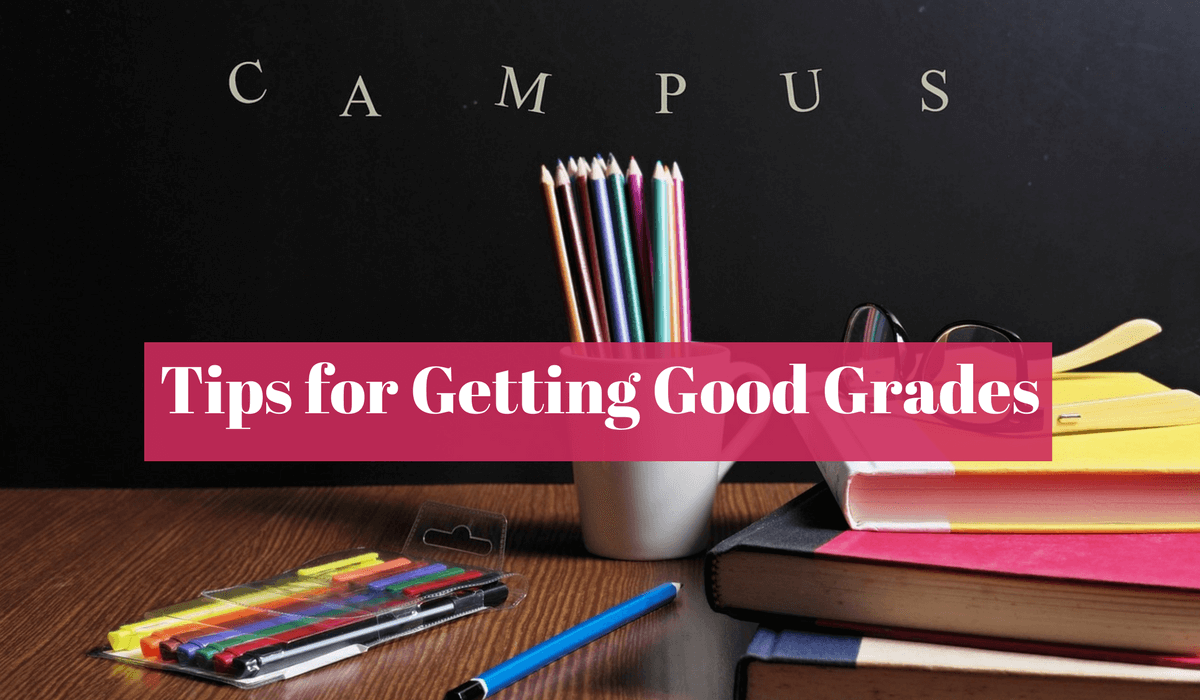Tips for Getting Good Grades
 One of the many goals that students want to achieve is, of course, getting good grades, but how can they achieve this goal? Fortunately, there are many learning styles that you can use and follow to help you with remembering and understanding your study materials. There are a variety of learning but three that most people fall into are visual learning, auditory learning, and kinesthetic (physical) learning.
One of the many goals that students want to achieve is, of course, getting good grades, but how can they achieve this goal? Fortunately, there are many learning styles that you can use and follow to help you with remembering and understanding your study materials. There are a variety of learning but three that most people fall into are visual learning, auditory learning, and kinesthetic (physical) learning.
Here are some tips that help you study and get good grades.
1. Know your learning style.
Every person learns differently. Knowing your unique learning style can help you to understand how you can improve your study habits and retention. Some students are primarily visual learners, and some are primarily auditory or kinesthetic (physical) learners. If a student’s learning style is auditory learning, you may find re-reading, reading aloud, summarizing, and highlighting the keywords will be helpful. However, if you’re a visual learner, you may want to try to use your imagination to explain what you have read; use symbols, colours and descriptive pictures when taking notes to compliment the words. Lastly, there are kinesthetic learners, or people whose most effective method of learning is by doing something physically. Kinesthetic learners typically excel in athletic fields, but kinesthetic learning can be extended to math, for example, through working out as many math problems as possible or using physical aids like blocks.
2. Read the course materials before going to the class.
Reading the materials ahead of time will prepare you for class. This activity allows you to familiarize yourself with the concepts before being taught them in class which will help you to engage with the instructor and learn actively. In addition, these habits will help you remember what you are taught allowing you to perform better on examinations.
3. Avoid procrastination
If you have an assignment, don’t do it at the last minute. Allowing enough time to complete your assignment will help you to the research well. Therefore, you are more likely to achieve higher grades and succeed in classes. Some tricks to avoid putting assignments off include scheduling the time to complete them, and avoiding distractions (Facebook, television) when you are in the process of working on your studies.
4. Manage your time effectively
Most students find their greatest challenge is managing their time effectively. It can be extremely difficult balancing school and personal life, especially if a part-time or full-time job is thrown into the mix. Try to manage your time well by creating, and sticking to, a schedule for both your personal and school lives.
5. Don’t give up
Even if you get low grades on some of your tests, that doesn’t mean you will fail the course. Try to push yourself — study harder and longer. It might be beneficial to seek the assistance of a peer or an instructor. If you think you may need to drop the course, you should try to calculate your overall grades and determine if your upcoming marks will give you a passing grade. If you think your next marks will cover the overall passing grade, then you don’t need to worry about failing the course. However, if you think you may end up failing the course, the best thing to do is to have a conversation with the instructor to see if recovering your grades is a possibility, or if dropping the class is the most beneficial way to go.
Good luck in your studies!

